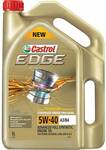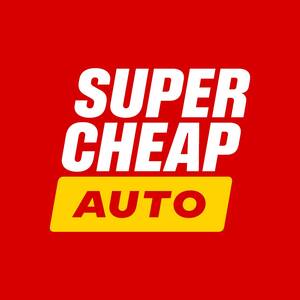Not a bad price for 5W-40 and with free shipping for Supercheap Auto members. Fits the specs of some popular European cars.
BMW Longlife-01
MB-Approval 229.3, 226.5, 229.5
Porsche A40
Renault RN 0700 / RN 0710
VW 502 00 / 505 00
Features:
- 5L. 5W-40. API SN/CF. ACEA A3/B4
- Contains Titanium Fluid Strength Technology
- Maximises short & long term engine performance
- Sustains maximum performance for longer
- Reduces engine deposits
- Sustains maximum performance for longer
- Reduces engine deposits




I use this in all my European cars, Castrol Edge ftw